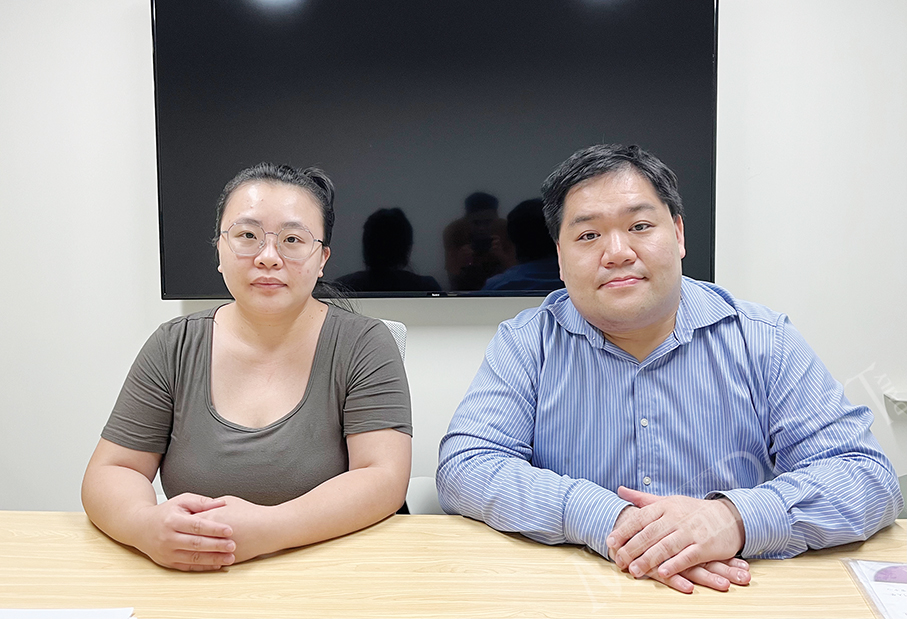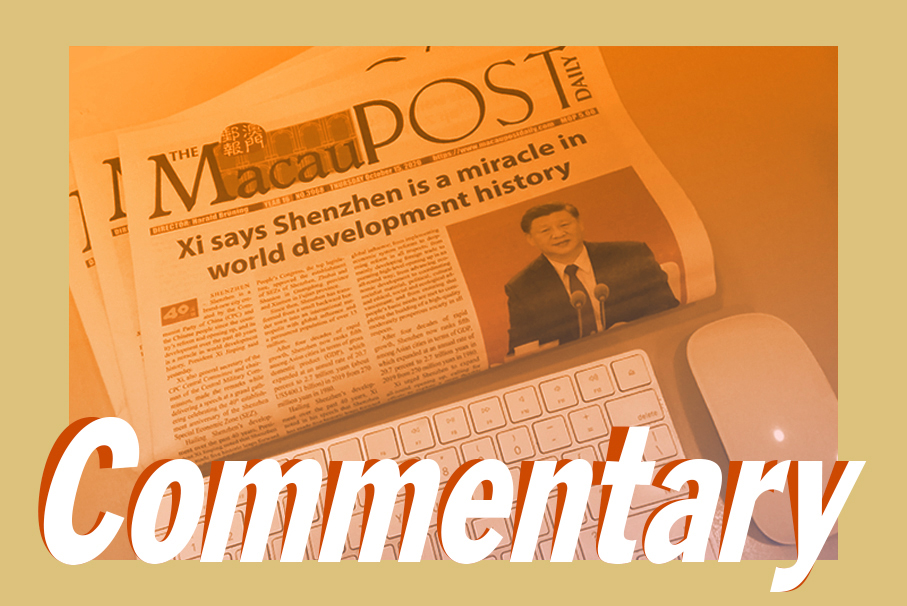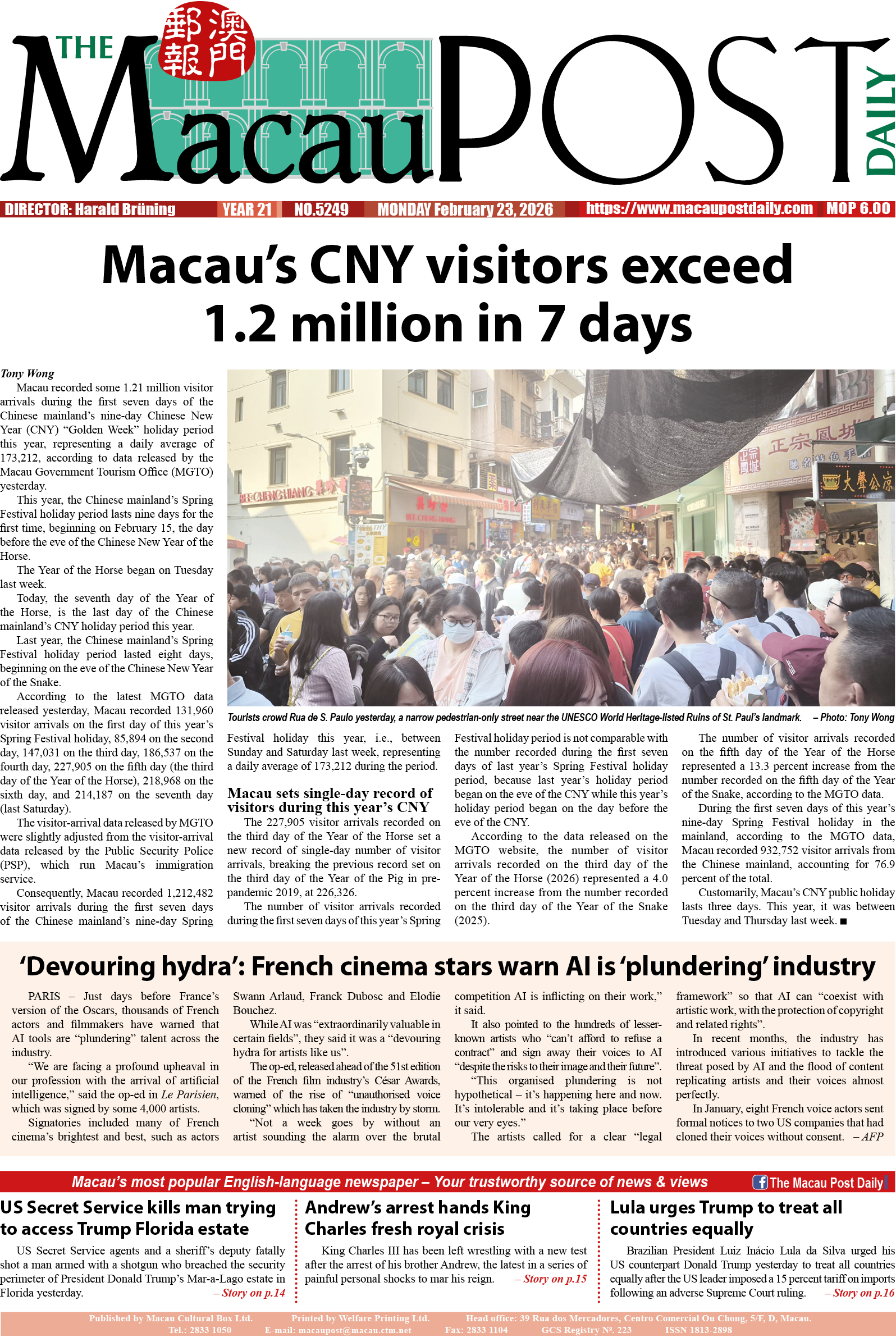Aiming to evaluate Macau’s situation as an ageing population in conjunction with the risk of cognitive impairment, Lei Kei Kei, a research assistant of Prof. Zhen Yuan’s research team at the University of Macau’s (UM) Centre for Cognitive and Brain Sciences (CCBS), and Orson Wong (王之煒), secretary-general of the Macau Association for the Promotion of Artificial Intelligence Education, spoke to The Macau Post Daily in an exclusive interview last week about their ongoing joint-research project.
Cognitive impairment, Wong said, is an early symptom leading to dementia.
The Alzheimer’s Association defines dementia as a general term for “loss of memory, language, problem-solving and other thinking abilities that are severe enough to interfere with daily life”.
The partnership
According to Wong, the UM team is responsible for the research subject while the association provides assistance in looking for the right research subjects and participants. Speaking on how the partnership was formed, the association, which promotes the application of artificial intelligence (AI) among the younger generation while also exploring ways for teaching or guiding the older generation in understanding AI, got in touch with the UM team after they had learnt about a UM programme on brain scanning to check for cognitive impairment in the early stage.
The research
Lei said that 12.9 percent of Macau’s population is aged over 65, adding that the city has already entered the situation of an aged society, noting that the “size of the ageing population will be much more severe” in the future, with dementia being among the biggest challenges.
Wong added that they want to evaluate what Macau’s current situation is, considering that it has an ageing population, adding that a main research objective is early intervention and finding out how many people may have issues with cognitive decline or cognitive impairment. They are also exploring what can be done to delay the symptoms from developing further, emphasising that when seniors show symptoms of being affected by the early stage of cognitive impairment, “we can do some protective measures to prevent it from getting worse”.
Speaking on the research framework, Wong explained that it consists of first doing the *MoCa cognitive assessment, in which students test the seniors. After the tests are completed, the results are assessed by the UM team to determine whether the seniors are in the early stage, middle stage or severe stage, and whether they need further investigation. Those showing some symptoms or problems will then be transferred to UM for brain scanning, adding that the image from the brain can help determine problems and if there are other factors leading to it. The issues may also be relayed to social workers.
Participants in the project, Lei noted, get to have a free magnetic resonance imaging (MRI) scan and will be given a disk containing the results that can also be used for medical consultations, while the transport to and from the university, where the scanning takes place, will be arranged by UM. A clearer database can then be formed, for which the information can be provided to the relevant government entities.
There will also be a tracking system in place in five years’ time when the tests are done again, determining if anything had got worse and whether other activities or further intervention is needed.
“I think ultimately what we are looking for is really solutions or whether or not there will be any early form or early intervention [and] what should we do at this stage in order not to cure but to keep it as it is at this stage, instead of having the situation get even worse”, Wong said.
A first trial for the research was held from January to April this year, employing younger students to assist in the MoCa Cognitive Assessment taken by the elderly aged over 65. Lei said that the UM research team corrected data that were not completed such as name, age and gender, with final data resulting in 37.3 percent out of 220 people showing “relatively low scores of the assessment”, which may indicate a possible cognitive decline. However, this needs to be further diagnosed by a neurologist, she added.
In the early stages of the research, the teams focused on the seniors taken care of by Caritas and elderly service centres. They are currently assessing if they can extend the research subjects to get multiple sources in the community in order to gain a better insight into what is happening among them.
Combining research & social service
Lei, meanwhile, noted that a “beautiful” part of the research is the devotion of the students involved. It also brings an understanding of and devotion to research towards helping society, which also could address the lack of qualified human resources in Macau for senior care, according to Lei.
Wong underlined that during the research both the students and the seniors found their interactions to be meaningful and engaging as it is helping civil society, with students using their efforts to explain the tests to seniors while the seniors can have more opportunities to interact with young people, which, he said, he believed is still lacking in Macau.
Wong said he hoped that the project could be done on a more regular basis alongside the UM team for the better future of taking care of seniors in the next 10 years, and their day-to-day interactions.
*According to the MoCa (Montreal Cognitive Assessment) website, the assessment is “a brief, 30-question test that helps healthcare professionals detect cognitive impairments very early on, allowing for faster diagnosis and patient care”.

Lei Kei Kei (left), a research assistant of Prof. Zhen Yuan’s research team at the University of Macau’s (UM) Centre for Cognitive and Brain Sciences (CCBS), and Orson Wong (王之煒), secretary-general of the Macau Association for the Promotion of Artificial Intelligence Education, pose at the association’s office in Nape during last week’s interview. – Photo: Rui Pastorin








